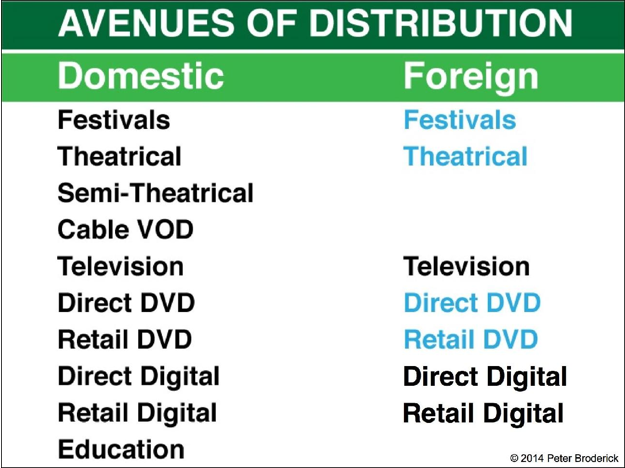Evolving out of a recent presentation and interviews with members of Film Independent, leading distribution strategist Peter Broderick has written an important set of guidelines for anyone seeking to negotiate a distribution deal for their movie. Shorter versions of this post have also run on IndieWire and Film Independent, and we’re happy to run the complete post here in three parts on Hope For Film. Read PART ONE BELOW. PART TWO Friday. And PART THREE Next Week.
You’ve finally finished your film and have just received your first distribution offer. Now what?
Negotiation is an essential but little understood part of dealmaking. To make fair deals with good distributors, there are mistakes you must avoid and steps you need to take.
I recently gave a presentation on the secrets of negotiating distribution deals to a full house of Film Independent members. My subsequent interview for the Film Independent newsletter evolved into this Bulletin. It supplements my Special Report on festival and dealmaking strategies. It is not a comprehensive guide to negotiating distribution deals but does highlight key dos and don’ts.

8 MISTAKES TO AVOID
-
Don’t submit to festivals too early. Most filmmakers do and end up regretting it. If your movie is not as good as it’s going to get but you submit anyway, you increase the already high odds of being rejected. You should resist the siren calls of festival deadlines until you’re confident you’ve made the strongest film you can make. You need to put your best foot forward with festivals, press, and distributors. Utilize test screenings with strangers (rather than family and friends) to determine if your film is ready to premiere. These screenings will help you determine what changes need to be made. Then you can test screen a new cut for another audience.
-
Don’t submit your film to distributors or producer’s reps without internally having a customized distribution strategy. This strategy should include your plans for each avenue of distribution. Too many filmmakers follow the old playbook and take a formulaic approach to submitting their movies to the usual suspects without having a clear vision of how they want their films to come into the world.
-
Don’t begin negotiating with distributors until you have done due diligence. You should first speak with filmmakers who are currently or have recently been in business with any companies you are seriously considering. You need to go beyond the references that distributors provide. Find out what the real experiences of other filmmakers have been – what is it like to work with the company, what have been the concrete results, and have they been paid accurately and on time. Where there is smoke, there is usually fire.
-
Do not attempt to go it alone. Too many filmmakers try to handle by themselves complicated distribution issues, which they know little or nothing about. Many suffer from the rampant “I have to do it all myself” disease. Some don’t know where to turn for help and worry it will be unaffordable.
-
Don’t automatically seek an all-rights deal without first having a clear understanding of the full spectrum of distribution opportunities. Magical solutions are usually too good to be true. Many filmmakers who give complete control of their distribution to one company end up regretting it.
-
Don’t negotiate distribution deals yourself. DIY filmmaking can be okay and DIY distribution may work in certain circumstances, but DIY dealmaking is not recommended. Assume the person you would be negotiating with has much more experience, knowledge, and skill than you.
-
Don’t be a victim of the bird-in-the-hand syndrome. If you only get a single offer, don’t be afraid to negotiate it because you are worried you will lose the deal and end up with no distribution. There’s a way to negotiate a single offer that will increase your chances of improving the deal. The key is to have an internal bottom line. The company you’re negotiating with needs to understand that if they don’t meet your bottom line (which you haven’t disclosed to them), you’re not going to sign the deal. If they believe you will sign their boilerplate contract without any changes, you will have no leverage. Never forget that no deal is better than a bad deal.
-
Don’t ever negotiate by email. When you are negotiating on the phone, on Skype, or in person, you have access to valuable information, whether it is tone of voice, body language, or a pregnant pause. This additional information will give you a better sense of where the other side is flexible and what their bottom line is, and make it easier to achieve a win-win deal.
(c) 2014 Peter Broderick





